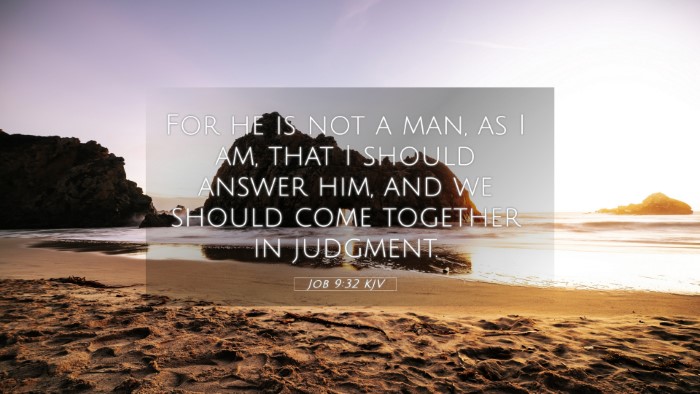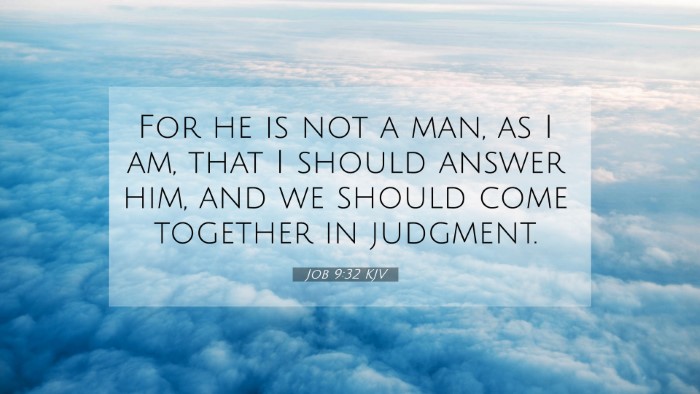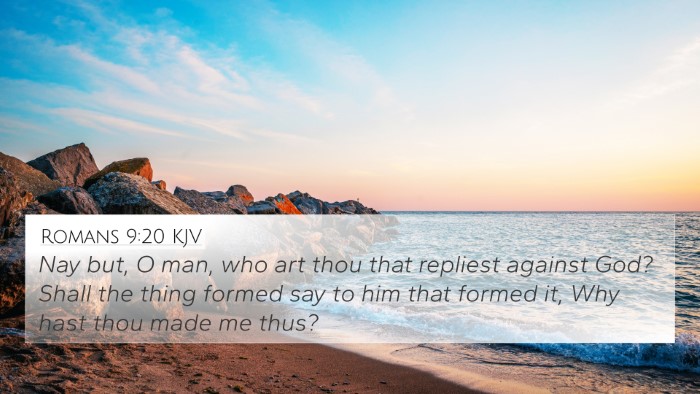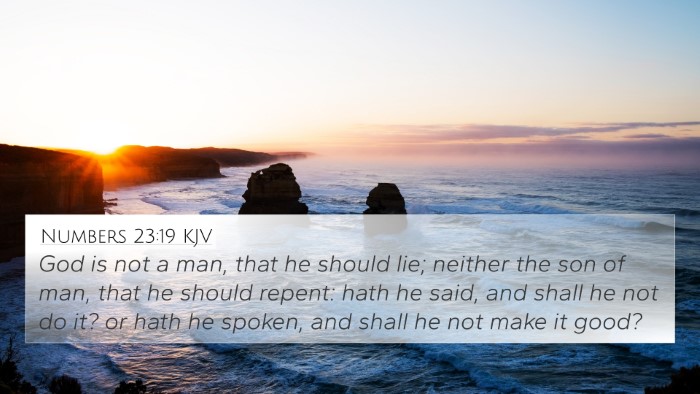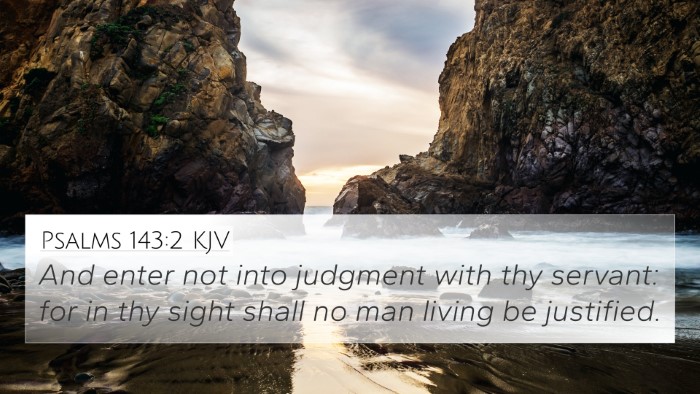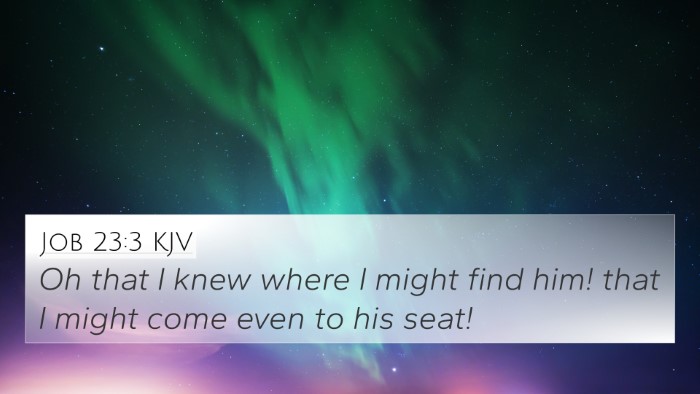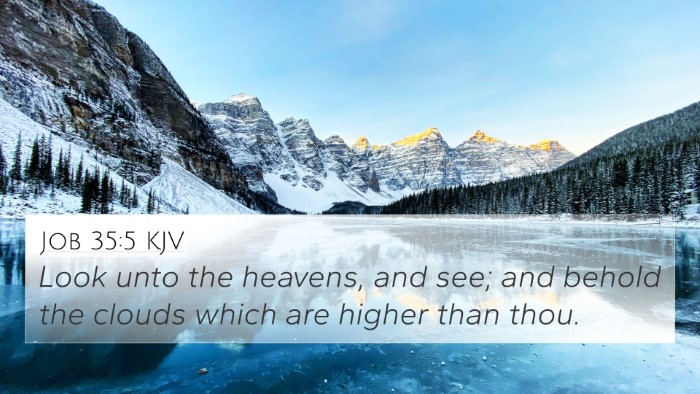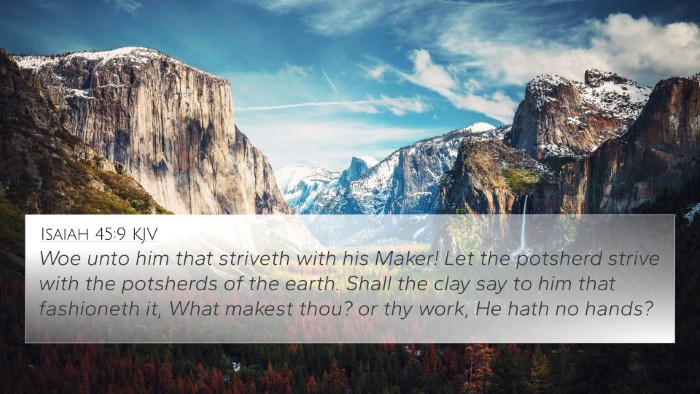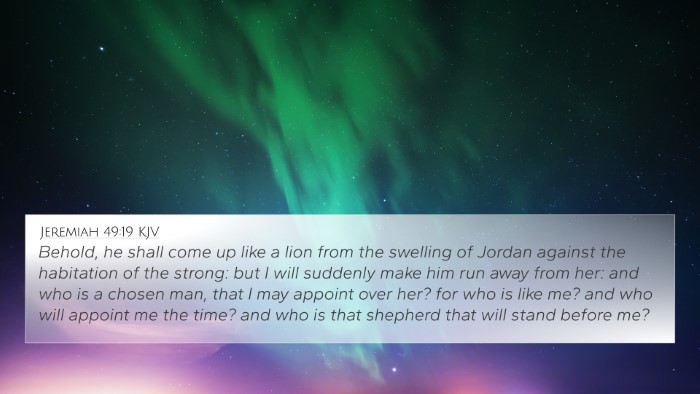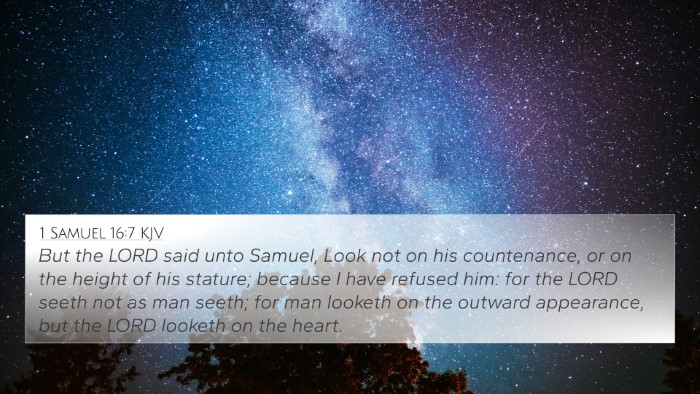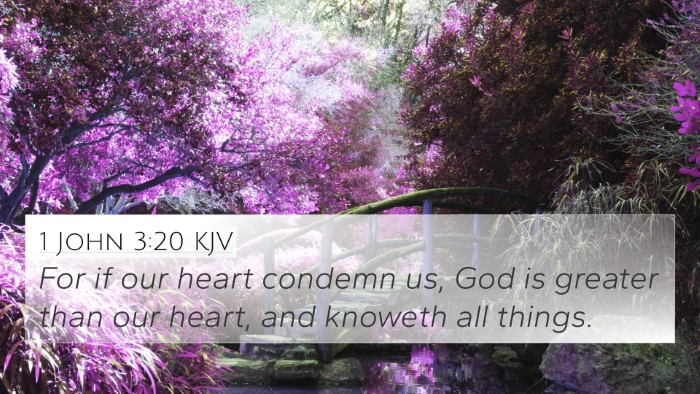Understanding Job 9:32
The verse Job 9:32 states: "For He is not a man, as I am, that I should answer Him, and we should come together in judgment." This poignant statement by Job reflects his deep understanding of the nature of God compared to humanity. Below, we explore the meaning, relationships, and theological implications of this scripture, drawing insights from various public domain commentaries.
Contextual Analysis
In the book of Job, we find a narrative about suffering, divine justice, and the human condition. Job, amidst his suffering, grapples with the righteousness of God and his own helplessness. His declaration in Job 9:32 emphasizes the vast chasm between God’s omnipotence and human frailty.
Insights from Matthew Henry
Matthew Henry notes that Job recognizes God’s sovereign power over all creation. He emphasizes that Job feels incapable of presenting his case before God, fearing that a mere human cannot challenge divine judgement. Henry points out that Job's lament reveals a longing for mediation between God and man, a theme that foreshadows the coming of Christ as our mediator.
Insights from Albert Barnes
Albert Barnes highlights the theological implications of this verse, underscoring that Job understands God as unapproachable and holy. He states that Job's assertion signifies a lack of divine understanding on Job's part. Barnes argues that this search for understanding signifies a universal human experience when faced with suffering and the desire for divine justice.
Insights from Adam Clarke
Adam Clarke expands on Job’s feeling of isolation. He clarifies that Job feels as if he cannot confront God in a court of law and receive a fair hearing. Clarke adds that this moment of despair reflects the greater theme of the struggle between human understanding of justice versus divine wisdom.
Thematic Connections
Job 9:32 connects with several essential Biblical themes, including:
- The Nature of God: Job acknowledges the incomprehensibility and sovereignty of God.
- The Human Condition: Expresses human weakness and the need for a mediator.
- Suffering and Justice: Highlights the struggle to understand divine justice amidst suffering.
Bible Cross References for Job 9:32
Job 9:32 is interwoven with various scriptures that explore related themes. Here are some biblical texts that provide cross-references:
- 1 Timothy 2:5: "For there is one God, and one mediator between God and men, the man Christ Jesus." - This emphasizes the role of Christ as the mediator Job longs for.
- Romans 5:1-2: "Therefore being justified by faith, we have peace with God through our Lord Jesus Christ." - Illustrates the peace and access to God provided through Christ.
- Hebrews 9:24: "For Christ is not entered into the holy places made with hands, which are the figures of the true; but into heaven itself, now to appear in the presence of God for us." - Connects with Job's need for an advocate.
- Psalm 8:4: "What is man, that you are mindful of him?" - Reflects on the same theme of human insignificance before God.
- Isaiah 55:8-9: "For my thoughts are not your thoughts, neither are your ways my ways, saith the LORD." - Emphasizes God’s higher wisdom compared to human understanding.
- Job 16:21: "Oh, that a man might plead with God, as a man pleadeth for his neighbor." - Directly aligns with Job's desire for advocacy.
- Ecclesiastes 7:20: "For there is not a just man upon earth, that doeth good, and sinneth not." - Reflects on human fallibility and the need for divine mercy.
Comparative Biblical Analysis
When understanding Job 9:32, it is essential to engage in comparative biblical analysis that reveals the interconnectedness of scripture. Cross-referencing biblical texts aids in building a comprehensive theological framework. Through tools such as a Bible concordance or a Bible cross-reference guide, believers can navigate these connections.
Tools for Bible Cross-Referencing
To delve deeper into connections between Bible verses, consider using:
- Bible Concordance: A lexicon that indexes words and phrases in the Bible.
- Bible Cross-Reference Guide: A resource that links related scriptures for thematic study.
- Bible Chain References: A method for following themes through various books in the Bible.
- Cross-Reference Bible Study Methods: Strategies for discovering themes across both Old and New Testament scriptures.
Conclusion
Job 9:32 encapsulates one of the central dilemmas of humanity: the struggle to comprehend God in the midst of pain and suffering. Understanding this verse requires recognizing both the limitations of human perspective and the vastness of God's nature.
As we explore thematic connections and utilize cross-referencing techniques, we enrich our understanding of scripture and the profound truths it holds for our lives today.

